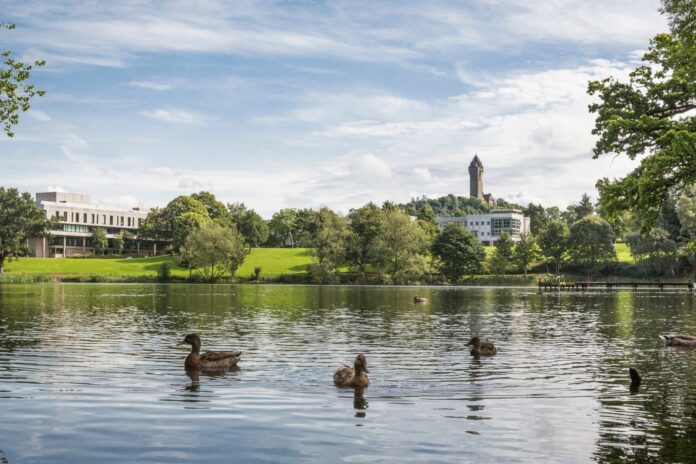BT is working with the University of Stirling to launch a 5G-enabled “living laboratory” for central Scotland.
Hailed as the first initiative of its kind for the UK, the environmental monitoring system aims to help organisations in the region make data-driven business decisions.
BT called it “a truly exciting milestone”. The laboratory will have access to BT’s 5G network, which was recently switched on in the Stirling area.
The project, led by the University, will capture, process and share data from across Forth Valley over EE 5G. Initially, using sensors, satellite data and artificial intelligence (AI), the laboratory will provide information on water quality.
BT says the work could help support the shift to a net-zero economy and a green recovery from the COVID-19 crisis.
“Endless possibilities”
In the first phase, BT will use the initiative to demonstrate how the platform can be used to: monitor water quality in drinking water reservoirs; provide near real-time forecasts of bathing water quality; provide early warning and monitoring of floods; and demonstrate environmental compliance in the brewing and distilling sector. The flood monitoring element will span the full catchment of the River Forth, while the other cases will focus on the River Leven sub catchment.
In the long-term, though, the solution could be applied in a wide range of settings and across multiple sectors, including agriculture; fisheries; shipping and navigation; food and drink; biodiversity and conservation; oil and gas; renewables and low carbon; green tourism; local and national governance; and public health.
A statement from BT said: “The possibilities are endless and it’s humbling to see how technology can play a fundamental role in our environmental efforts.”
It added: “We made a pledge to become a net zero carbon emissions business by 2045, and with our partnership with University of Stirling, we can demonstrate how other businesses can benefit from environment-based solutions too.”



